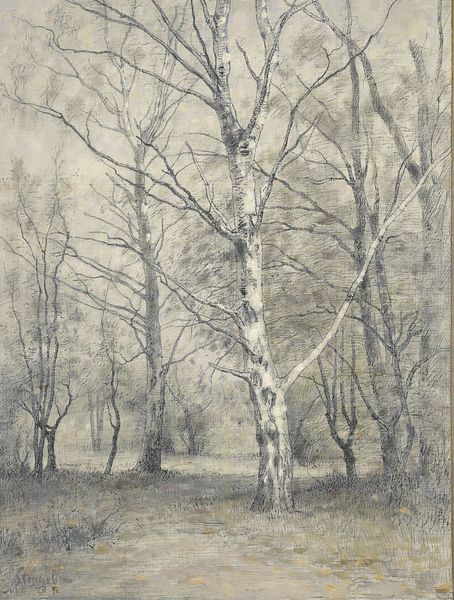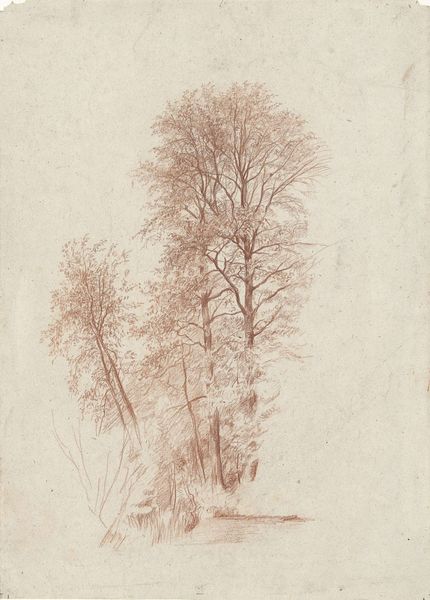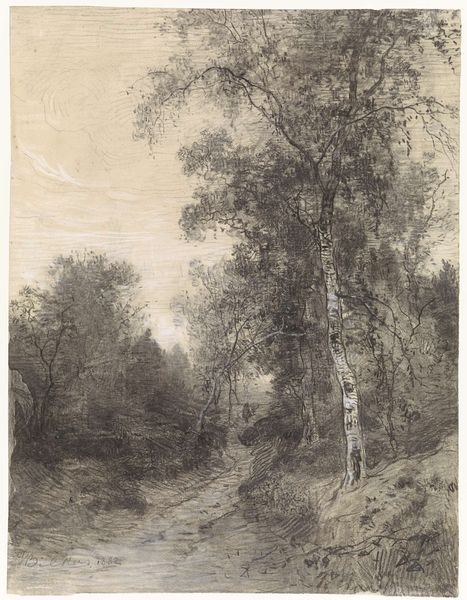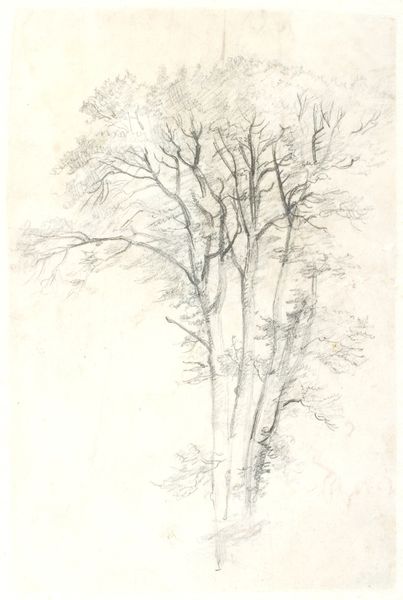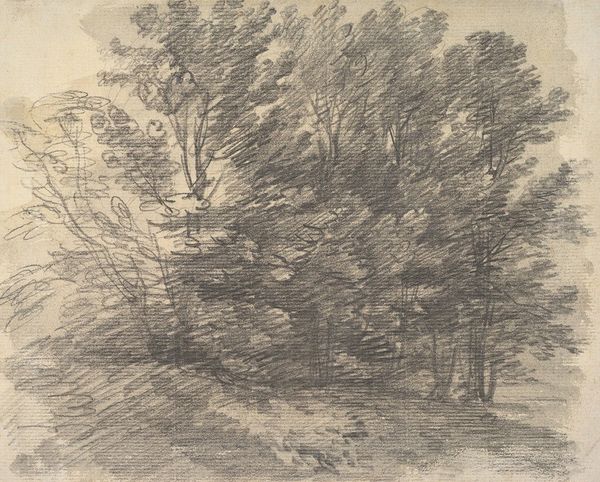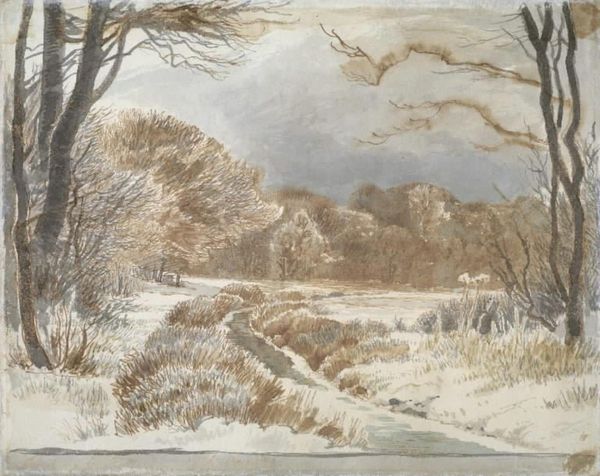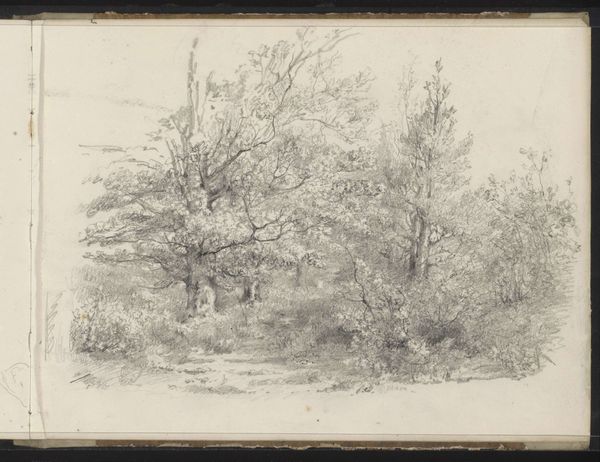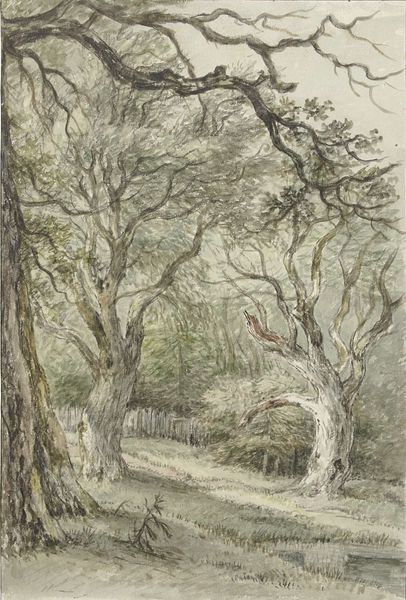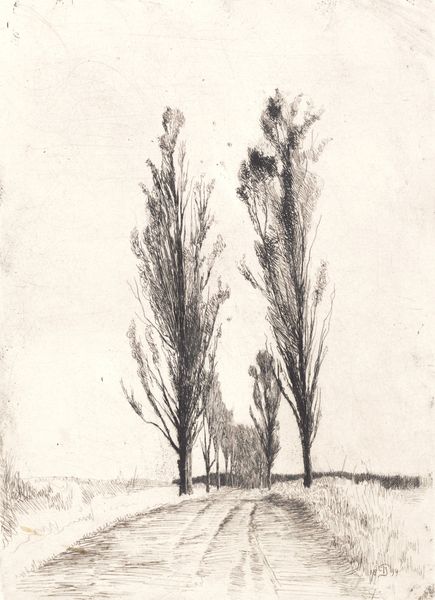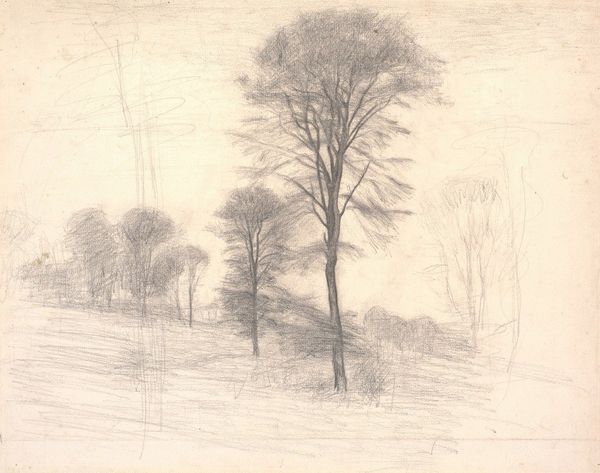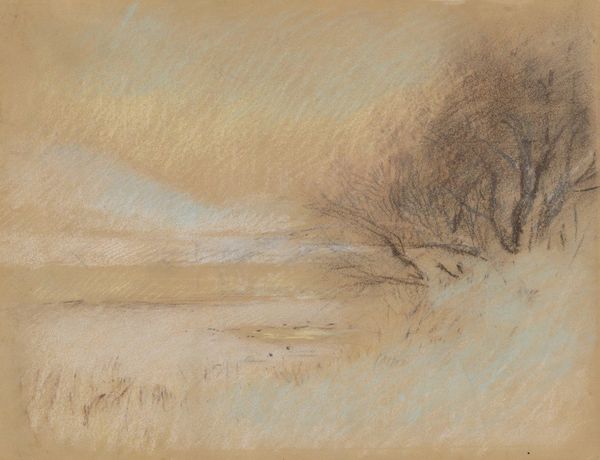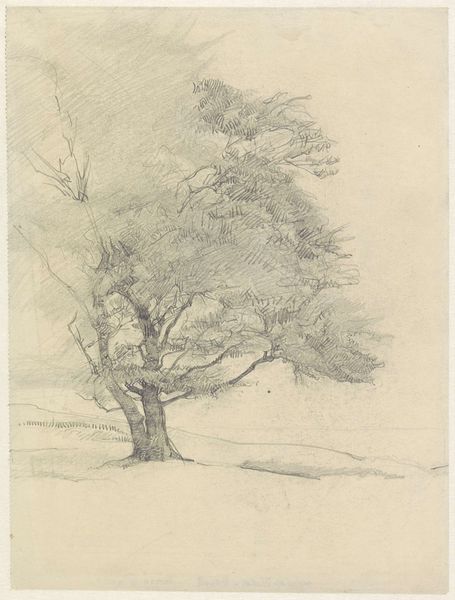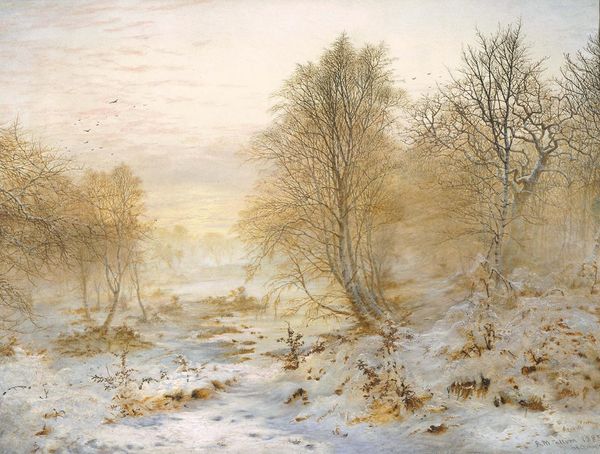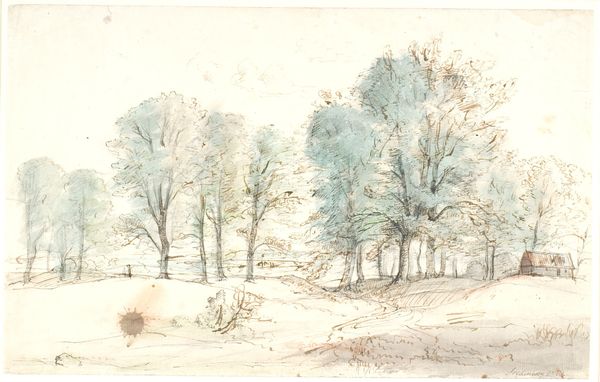
drawing, plein-air, watercolor, pencil
#
drawing
#
snow
#
natural shape and form
#
impressionism
#
plein-air
#
landscape
#
charcoal drawing
#
oil painting
#
watercolor
#
pencil
#
watercolor
#
realism
Dimensions: height 318 mm, width 216 mm
Copyright: Rijks Museum: Open Domain
Editor: Here we have Maria Bilders-van Bosse’s “Wanderer in the Snow at the Edge of a Forest," created sometime between 1847 and 1900. It’s a pencil, watercolor, and charcoal drawing… it feels like a very solitary, perhaps even melancholic scene. What draws your eye in this work? Curator: My gaze is captured by the lone figure, nearly swallowed by the immensity of the snow-laden landscape. The stark trees, reaching skyward like skeletal fingers, and the grey sky speak to a particular mood, wouldn't you agree? What might the wanderer represent, symbolically? Editor: Perhaps the fragility of humans against the strength of nature? The scale makes them feel very small. Curator: Indeed. The "wanderer" is a figure rich in cultural memory. Think of Caspar David Friedrich's “Wanderer Above the Sea of Fog.” In Bilders-van Bosse's iteration, what emotions do you associate with their journey through this specific landscape, given the winter setting and their isolation? Editor: There’s a sense of perseverance. They’re continuing on, even in the face of cold and isolation. Maybe they're on a spiritual quest. Curator: A very astute observation. It makes me think about seasonal metaphors. The barrenness may signify a time of reflection or hardship, the path they tread suggests a purposeful journey. The symbol resonates throughout cultures, doesn't it? A hero's journey. Editor: Absolutely. So the imagery points to both the universal and personal experiences, and this scene evokes a moment in time. It's thought provoking! Curator: Exactly! We find personal reflection connected to greater symbolism in many artworks, enriching its meanings for each viewer.
Comments
No comments
Be the first to comment and join the conversation on the ultimate creative platform.
